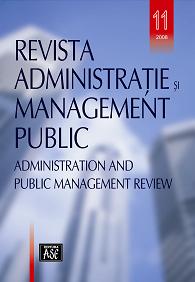Parteneriatul public-privat: soluie-miracol sau pilula otravitoare pentru economiile de tranzitie?
Public-private partnerships: silver bullet or poison pill for transition economies?
Author(s): Cristina Neesham, Jeff Keddie, Bernadine Van Gramber, Julian TeicherSubject(s): Economy
Published by: EDITURA ASE
Keywords: public-private partnership; public management; EU policy; transition economies
Summary/Abstract: In many nations, public-private partnerships (PPPs) commonly bring government and business together to implement infrastructure projects. Such partnerships are proving increasingly popular and are applied in a range of contexts. However, the common rationale for PPPs emerges from a particular view of public management that has been dominant in countries like Australia and the United Kingdom, and the arrangements used reflect the institutions of such jurisdictions. When such a partnership model is ‘translated’ uncritically into other nation states, or indeed into other spheres of government activity, it is fraught with risk for the effectiveness of implementation and with the potential for unwelcome and unintended consequences. For a transitional economy, PPPs raise questions of the necessary skill base for devising and managing them, in accessing capital markets, and in conflicts between commercial-in-confidence expectations of business and progress towards open and accountable government. For effective implementation of PPPs in a transitional economy like Romania, the most valuable contribution that the European Union could make may be to provide monitoring and guidance so as to avoid the pitfalls that other countries have encountered. As Romania embarks on PPPs it should take advantage of the international experience; for example, that the benefits of PPPs may be institution-specific. Another important lesson concerns project costs which can be nebulous but long-lasting, such as the challenges to governance presented by contracts which bind future governments to arrangements that are too expensive to rescind, either financially or politically.
Journal: Revista »Administratie si Management Public« (RAMP)
- Issue Year: 2008
- Issue No: 11
- Page Range: 66-82
- Page Count: 17
- Language: English

